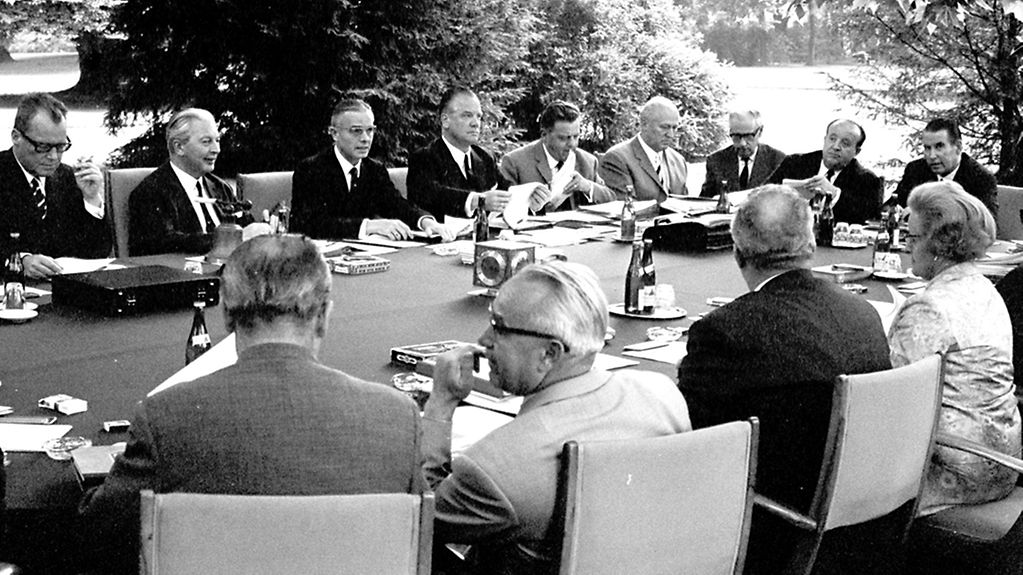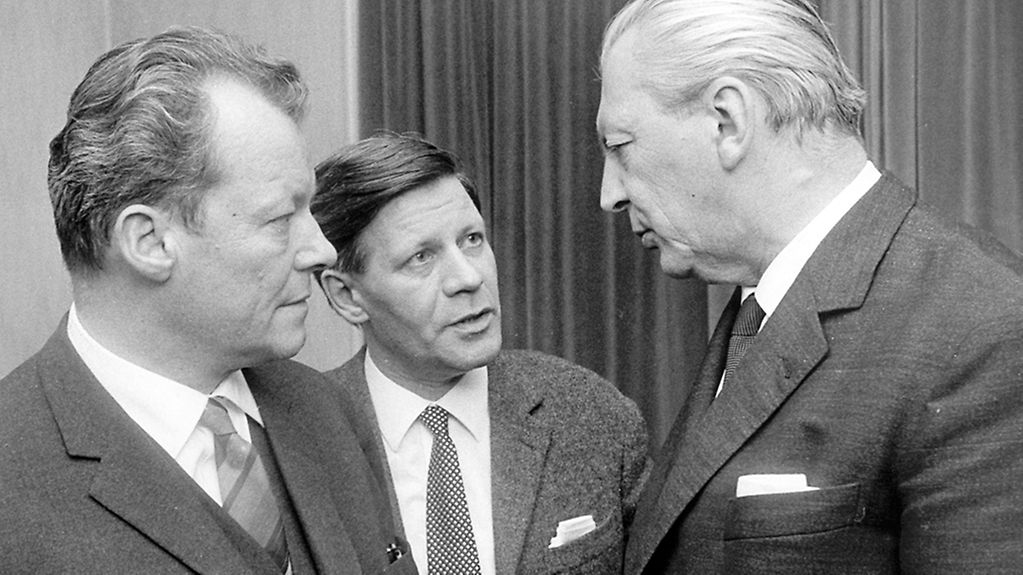First Grand Coalition

Kurt Georg Kiesinger visiting Rossenray Coal Mine
Photo: Bundesregierung/Gräfingholt
Kurt Georg Kiesinger (CDU) was elected Federal Chancellor in 1966 and headed the first Grand Coalition comprising the CDU/CSU and the SPD. Its main emphases were on economic and fiscal policy.
Germany’s first Grand Coalition had an economic crisis to deal with: The economy was no longer in full swing as it had been for many years, the state was running up debts and unemployment was rising. Kiesinger’s government tackled these problems head on.
For example, during this time the state awarded many contracts so that businesses would not go bankrupt and people did not become unemployed.
The Grand Coalition also improved relations with Eastern European neighbours. West Germany took up diplomatic relations with Romania and Yugoslavia, for instance. Kiesinger also began corresponding with the then Minister-President of the German Democratic Republic, Willi Stoph.
Emergency legislation

A cabinet meeting of the Grand Coalition
Photo: Bundesregierung/Reineke
The issue that no doubt most shaped public debate during the first Grand Coalition government was the emergency legislation it passed. Although West Germany was responsible for its own fate from 1955 onwards, the occupying powers (the United States, the United Kingdom and France) reserved certain rights. They still held the right to protect their armed forces that were stationed in Germany.
These rights would only be transferred to the German authorities when they were able to protect those armed forces themselves. In other words, the Federal Government needed to adopt legislation to cover all types of emergency situations. Students in particular protested against these new laws. They wanted to prevent the state gaining so much power so shortly after the war.
"The '68 generation"

Kurt Georg Kiesinger talking to Willy Brandt and Helmut Schmidt
Photo: picture-alliance/dpa
The protests against the emergency legislation set in motion great social upheaval. These developments have since been referred to as “the ’68 generation” because they began around 1968. Many young people and students called for reforms and more personal freedoms. They rejected the United States’ war in Vietnam and asked the older generation about their involvement in the National Socialists’ tyranny.
A broad-based protest movement directed against all outdated authorities arose: against schools, parents and the state. Terrorist groups whose crimes were to severely shake West Germany a few years later formed around the extremist edges of this movement.
The elections to the Bundestag in the autumn of 1969 ended the 20-year period of CDU/CSU government.